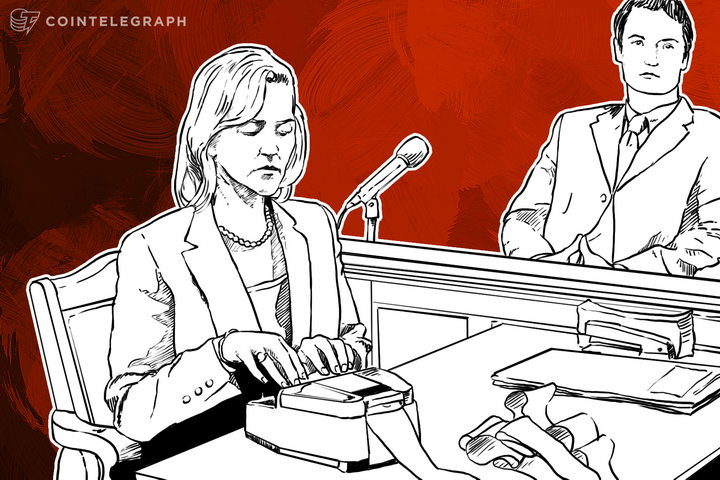Back in May, New York District Court Judge Katherine Forrest sentenced Silk Road website founder Ross Ulbricht to life in prison. For a first-time offender and a non-violent offender at that, the sentence seemed somewhat excessive to many within and outside of the Bitcoin community. The reasoning behind Judge Forrest’s sentencing has now been unsealed for public review.
Ross Ulbricht Sentencing
Massive sentences for non-violent drug offenses has been controversial
The explosion in the prison population within the United States has reached alarming proportions. More than 2 million citizens are currently in prison, by far the largest prison population for any nation. According to the latest statistics, the U.S. accounts for about 5% of the world’s population, but about 25% of the world’s prison population.
This has largely been due to “The Rockefeller Laws” and “The War on Drugs” starting in the mid-1980’s. Over the last 20 years, the U.S. prison population has more than doubled. The sentencing in the Silk Road case is another example of how this happens so quickly in “The Land of the Free.”
Before Ross Ulbricht’s sentencing on May 29, 2015, Judge Forrest spent the better part of an hour defending current drug laws and deriding Ulbricht’s crimes and defense. After spending over 100 hours pondering an appropriate sentence, and reviewing almost as many letters of testimony to the character of Ulbricht from friends and family, Judge Forrest stated:
“What Silk Road really was, was a social market expander of a socially harmful drug that we have deemed in our democratic process to be unacceptable and it was an enabler of those trying so very hard to get away from it. What you did in connection with Silk Road was terribly destructive to our social fabric.”
Judge Forrest saw the defense’s arguments as somewhat offensive, attacking the validity of the laws referenced in this case. Forrest seemed to use Ulbricht’s education and solid upbringing as reasons to be harsher with the defendant.
“No drug dealer from the Bronx selling meth or heroin or crack has ever made these kinds of arguments to the Court,” Judge Forrest said. “It is a privileged argument, it is an argument from one of privilege. You are no better a person than any other drug dealer and your education does not give you a special place of privilege in our criminal justice system. It makes it less explicable why you did what you did.”
Judge Forrest saw the case being so widely publicized as an opportunity to use the sentence as a deterrent against future offenses of this nature. She also saw Ulbricht as someone who thought he was “above the law” in building Silk Road for drug sales, so her final sentence was as severe as any ever handed out to an online webmaster.
As we’ve reported here, Ross Ulbricht received two concurrent life sentences for narcotics trafficking, narcotics conspiracy and distribution of narcotics by means of the Internet. Three other counts included one count of conspiracy to commit computer hacking (5 years), one count of conspiracy to traffic in fraudulent identification documents (10 years), and one count of money laundering conspiracy (20 years). In addition, Ulbricht was fined US$183,961,921. Ulbricht is currently appealing his sentencing.
Ross’s final statement to the court before sentencing was also released, and Ulbricht showed much contrition, even breaking down into tears, at one point. He apologized to the families of those who died from the drugs sold on Silk Road, as some spoke against him before sentencing. His time in jail since his arrest in the fall of 2013 gave him time to reflect, and gain respect for the laws he is said to have broken.
“One of the things I have realized about the law is that the laws of nature are much like the laws of man,” said Ulbricht in court. “Gravity doesn't care if you agree with it––if you jump off a cliff you are still going to get hurt. And even though I didn't agree with the law, I still have been convicted of a crime and must be punished. I understand that now and I respect the law and the authority now.”
Issues with how the case was handled
The court case and its handling was soundly ridiculed by filmmaker Alex Winter, who attended the court proceedings in person. He went on to chronicle the background of the case in his biopic “Deep Web”. He was of the opinion that Ulbricht’s defense team never received a fair opportunity to defend Ross, as any defense levied was thrown out by Judge Forrest in Winter’s view as a spectator.
“I hope to see (the defense) get their day in court. That was the part that was very chilling and frustrating when I was in the courtroom,” Winter told Joe Rogan on Rogan’s podcast in April. “It was like, the prosecution said their piece, the defense was about to, bam, they got blocked (by Judge Forrest), it was over. (The defense) was unable to call expert witnesses, discuss the complexities of Bitcoin. I would just like to see the defense have its day.”
Regarding issues with non-violent drug offense sentencing, Vice recently aired a special featuring President Barack Obama going to El Reno Federal Prison in Oklahoma regarding this exact issue. Called “Fixing The System,” President Obama was the first sitting President to ever visit a federal prison with the intent to talk to inmates and learn more about the societal byproducts of “The War on Drugs.” U.S. Attorney General Eric Holder was also interviewed by Shane Smith of Vice for the report.
“Nobody ever lost an election because they were too tough on crime,” said President Obama to Vice’s Smith in El Reno. “Nobody stepped back and asked ‘Is it really appropriate for someone who is engaged in a serious, but non-violent, drug offense, to get more time than a rapist?


